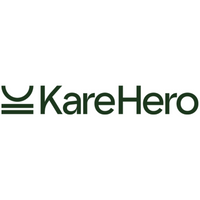4 ways to ensure your recognition strategy is inclusive
An effective recognition strategy is a powerful tool.
Not only does reward and recognition develop a high performing workforce that is resilient, it also engages employees while ensuring they feel seen, valued and included.
Employee recognition strategies are therefore critical for employee engagement and retention. These figures highlight the significance of recognition in the workplace:
- The Employee Experience Index from Workhuman/IBM, based on data gathered from more than 23,000 employees in 45 countries, shows when employees are recognised for doing good work, 83% report a more positive employee experience.
- A study by Globoforce/WorkHuman found that employees who receive regular recognition are five times more likely to feel valued and appreciated, six times more likely to invest in their work and seven times more likely to stay with their employer for at least another year.
- During Carers Week 2023, when asked what support they missed out on as a result of not knowing they were a carer, 31% of carers in employment said they had missed out on support at work.
- Women are four times more likely to go part-time or quit their job when they become a caregiver for an adult in their family. Many feel unable to tell their employer about caregiver burnout when they are working. Being recognised as a carer is critical to retention and engagement.
A well-designed employee recognition strategy demonstrates a commitment to workforce inclusivity, increasing feelings of value and purpose among all segments of your workforce.
4 ways to ensure your recognition strategy is inclusive:
1. Meet the needs of employees
This year promises to be a big one for employee rights for one of two reasons.
Until 2024, unpaid adult carers - there are 5 million working carers in the UK - were a section of the workforce whose needs were continuously unmet. But, thanks to the Carer’s Leave Act, from 6 April, employees will have a statutory right to a week’s unpaid leave to care for a dependent.
However, some UK employers have given this additional leave as paid leave, demonstrating empathy towards the needs of working carers and their loved ones.
Similarly, the Flexible Working Act, which also comes into effect on 6 April, will give millions more UK employees increased flexibility over where and when they work, giving them permission to make two statutory requests in any 12-month period, making a workplace a much more flexible and understanding place for all members of your workforce.
Now is the time for employers to really get behind the needs of their employees and adapt to the modern working world.
2. Know your workforce segments
To ensure a recognition strategy is inclusive, employers need to know and understand the values, characteristics and preferences of their different workforce segments.
Gathering data through interviews, focus groups, surveys, feedback tools and performance reviews will offer insight into what satisfies and motivates employees.
Workforce planning tools such as profiles, personas and segmentation models will help identify the common needs and traits of your different workforce segments.
3. Flexible benefits
When developing benefit packages, it is important to use an all-inclusive, constantly evolving approach based on the needs of employees.
Analytics offer a way to identify what is meaningful to employees (either by using survey methods or measuring benefits uptake via your employee experience portal’s management system), while also tailoring benefits to fit the needs of your workforce, ensuring that inclusivity is at the forefront of your organisation’s reward agenda.
Flexible benefit schemes are a way to achieve this. The same benefits will be available to everyone, but employees can swap and choose benefits that suit their lifestyle best. For example, working carers may like to choose healthcare benefits that can be extended to family members, older employees might prefer more generous pension contributions and younger employees may like schemes to help them get on the property ladder.
4. Inclusive workplace models
One way to nurture a more inclusive workplace is with networks that provide support for individual groups.
For example, the Phoenix Group’s Carers Network works to raise awareness, provide support for and make carers visible in the workplace.
The Carer’s Network supports the challenges these situations entail, as well as helping carers find additional support outside the organisation.
Whether an employee cares for elderly parents with the challenges of at-home care, nursing home fees or end of life care; a son/daughter with autism; or a partner after a stroke or cancer diagnosis, the world of care is vast, and working carers need their employer’s help and understanding.
Each of us face a 50/50 chance of becoming a carer by the age of 50 according to Employers for Carers.
To tackle this head on, whether you are putting together a brand-new carer’s policy, or building up an existing support system, Employers for Carers can help, leveraging specialist knowledge from Carers UK and the wider Employers for Carers community.
Similarly, KareHero aims to help working carers navigate their professional and personal lives with more ease, ensuring they receive the funding and assistance they are entitled to to achieve this.
Inclusive cultures and recognition strategies ensure people feel valued. By acknowledging and celebrating the differences within your workforce, all your employees will know they matter to you.
Supplied by REBA Associate Member, KareHero
The #1 adult caregiving support service. Helping employees understand, find and fund their care journey.








